detail profile mikhail kuznetsov
Peran Yang Di Mainkan Mikhail Kuznetsov
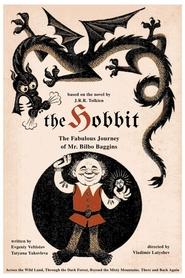 The Author ie J R R...
The Author ie J R R...The Fabulous Journey of Mr. Bilbo Baggins, the Hobbit, Across the Wild Land, Through the Dark Forest, Beyond the Misty Mountains. There and Back Again 1985
The Author, i.e. J. R. R. Tolkien himself (played by Zinovij Gerdt), tells "his" story: the life of Bilbo Baggins, a quiet and enjoyable hobbit, is turned upside down when he decides to join the wizard Gandalf and a company of thirteen dwarves in an attempt to regain a treasure stolen from the latter. [Soviet television movie adaptation of "The Hobbit"]
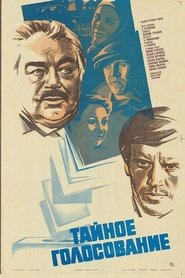 The chairman of the Rassvet collective...
The chairman of the Rassvet collective...Secret Ballot 1980
The chairman of the Rassvet collective farm, Foma Lukash, lived honestly and fairly. But when his heart began to catch, Lukash went to the hospital. Meanwhile, his deputy began to establish new orders on the collective farm. For example, the working day was moved to a later time. Many people liked it, because it wasn’t war. But Foma, upon leaving the hospital, did not accept the new changes - and demanded early re-election of the chairman...
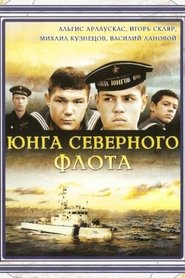 The screen story of four teenagers...
The screen story of four teenagers...Sea Cadet of Northern Fleet 1973
The screen story of four teenagers, on whom the horrors of war had left an indelible mark. Their relatives’ deaths and their yearning for fighting the Nazis led them, one way or another, to a sea cadet school that had been opened on Solovetski Islands at the start of the war. This film tells of men’s friendship, the boys’ first baptism of fire, and the victory…
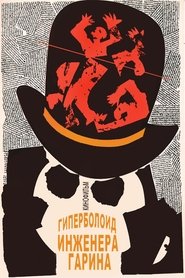 A Russian engineer Petr Garin possesses...
A Russian engineer Petr Garin possesses...The Hyperboloid of Engineer Garin 1965
A Russian engineer Petr Garin possesses a unique beam-shooting weapon that can destroy any target. His goal is to achieve world domination with the help of this weapon. Vasily Shelga is out to stop him and also to prevent others getting possession of this weapon.
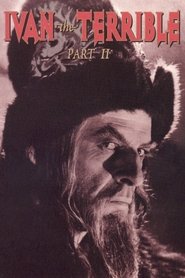 This is the second part of...
This is the second part of...Ivan the Terrible, Part II: The Boyars' Plot 1958
This is the second part of a projected three-part epic biopic of Russian Czar Ivan Grozny, undertaken by Soviet film-maker Sergei Eisenstein at the behest of Josef Stalin. Production of the epic was stopped before the third part could be filmed, due to producer dissatisfaction with Eisenstein's introducing forbidden experimental filming techniques into the material, more evident in this part than the first part. As it was, this second part was banned from showings until after the deaths of both Eisenstein and Stalin, and a change of attitude by the subsequent heads of the Soviet government. In this part, as Ivan the Terrible attempts to consolidate his power by establishing a personal army, his political rivals, the Russian boyars, plot to assassinate him.
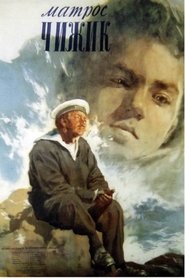 Having been wounded during the exercises...
Having been wounded during the exercises...Sailor Chizhik 1955
Having been wounded during the exercises, the sailor Fedos Chizhik is sent as a orderly to the house of Captain Luzgin. The captain's wife - a young, beautiful, and spoiled woman - is very hard on the orderly.
 Growing up in a Ukrainian peasant...
Growing up in a Ukrainian peasant...Taras Shevchenko 1951
Growing up in a Ukrainian peasant family, knowing all hardships of serf life, young artist and poet Taras Shevchenko in the years of study clearly identifies the meaning of true art, which is to serve the interests of the people. The poems of Shevchenko are imbued with love for the common people. Fiery freedom-loving creativity of Taras Shevchenko is known throughout Russia. Nicholas I exiles the poet to the distant Caspian fort where he is to serve as an ordinary soldier and is banned from writing or drawing. In the poet's difficult days he has the support of Ukrainian soldier Skobelev, Polish revolutionary Sierakowski, captain Kosarev and the commandant of the fortress, Uskov. For the sake of his release Chernyshevsky and Dobrolyubov are hard at work. And so, the sick and aged Shevchenko is finally free. Together with Chernyshevsky and Dobrolyubov, he dreams of a bright future of the motherland, when the Russian and Ukrainian peoples throw off the chains of slavery.
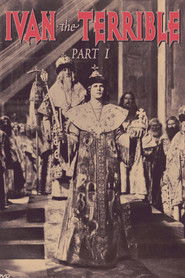 Set during the early part of...
Set during the early part of...Ivan the Terrible, Part I 1944
Set during the early part of his reign, Ivan faces betrayal from the aristocracy and even his closest friends as he seeks to unite the Russian people. Sergei Eisenstein's final film, this is the first part of a three-part biopic of Tsar Ivan IV of Russia, which was never completed due to the producer's dissatisfaction with Eisenstein's attempts to use forbidden experimental filming techniques and excessive cost overruns. The second part was completed but not released for a decade after Eisenstein's death and a change of heart in the USSR government toward his work; the third part was only in its earliest stage of filming when shooting was stopped altogether.
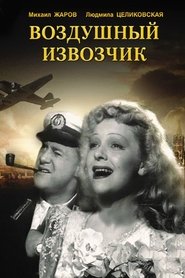 A musical romantic comedy set in...
A musical romantic comedy set in...Air Taxi 1943
A musical romantic comedy set in Soviet Union during the first years of WWII.
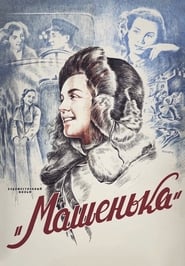 Lovely telegraph operator Masha Stepanova is...
Lovely telegraph operator Masha Stepanova is...Mashenka 1942
Lovely telegraph operator Masha Stepanova is a sanitary nurse. During a training alarm, she meets a taxi driver Alexei (Alyosha) Solovyov. He reads verses to a girl and invites her to the theater. But at the appointed time, Alyosha doesn't come, and Mashenka finds him, helps to recover. Young people fell in love with each other, but Alexei was too frivolous, and brings the girl a lot of sorrows and insults. Because of Alexei’s hobby for another girl, Masha breaks up with him. But she will be able to convey her faithful and true-hearted feeling through years of separation and the hardships of wartime, and when they meet again at the front of the Finnish War, Solovyov realizes what a gift of fate was meeting him with this girl.
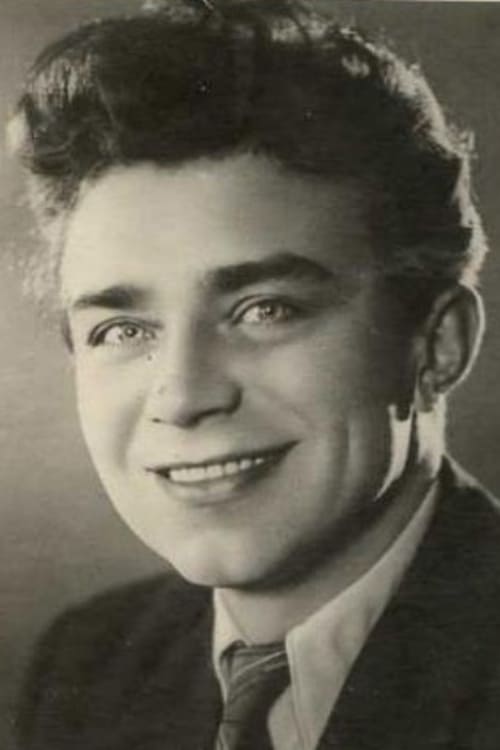
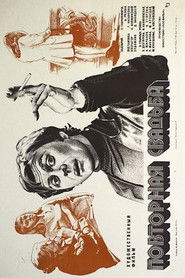
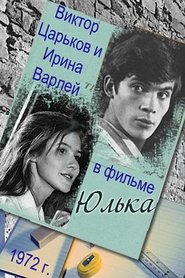 A story about sixteen years old...
A story about sixteen years old...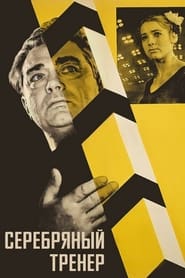
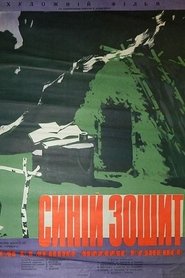 In the summer of 1917 Vladimir Lenin...
In the summer of 1917 Vladimir Lenin...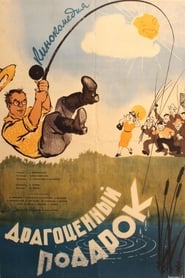 The inveterate fisherman Karp Trofimovich has...
The inveterate fisherman Karp Trofimovich has...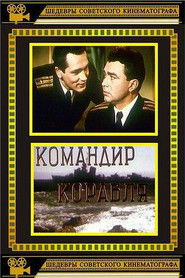
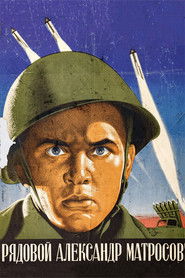 The film is about the exploit...
The film is about the exploit...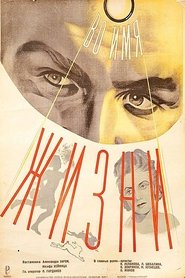
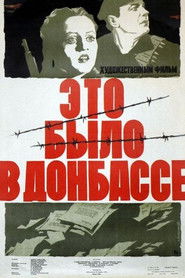 The film is about the Soviet...
The film is about the Soviet...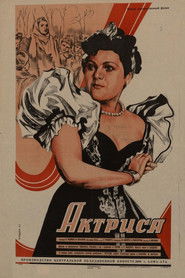 Zoya Vladimirovna Strelnikova a famous operetta...
Zoya Vladimirovna Strelnikova a famous operetta...